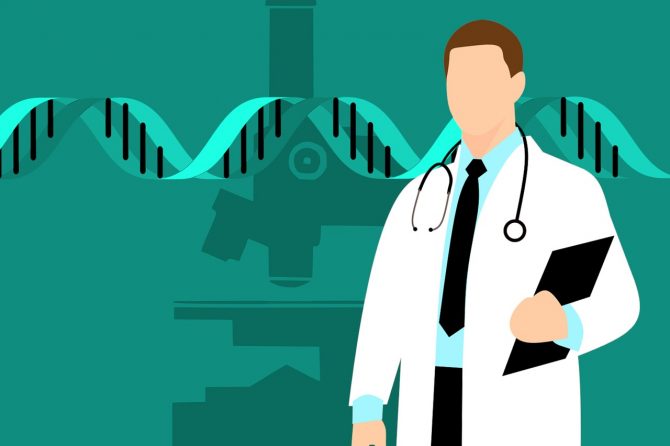
How Are Bioidentical Hormones Used?
Defined as man-made hormones; they are very similar to the hormones produced by the human body. These are then used as treatment for men and women whose own hormones are low or out of balance.
Hormones are special chemicals made by parts of the body called glands. They are messengers that tell other parts of the body how and when to work. Hormones control almost all tasks in the body. These include sex and brain function, growth and the breakdown of food. When hormones are out of balance, symptoms can occur.
Common hormones that are matched are estrogen, progesterone and testosterone. These are then used as treatment for men and women whose own hormones are low or out of balance. Some prescription forms of bioidentical hormones are premade by a drug company. Other forms are custom-made by a pharmacist based on a doctor’s order. This is called compounding.
The US Food and Drug Administration (FDA) has approved a number of preparations of bioidentical estradiol and progesterone, which are molecularly identical to the structure of the hormones generated by the human body. They have been through testing for safety and purity and to be sure each dose has the same amount of hormones. The compounded forms have not been tested and approved by the FDA. Though it is often advertised that products that are made from plants like soybeans and yams are “natural” choices, they are altered greatly in a lab so are no longer natural when done with processing. Both the FDA-approved and compounded hormones come in a variety of doses and routes of delivery (pills, creams, gels, sprays, and vaginal inserts).
Customized bioidentical hormones are often advertised as being a safer, more effective, natural, and an individualized alternative to conventional hormone therapy.
Although custom hormone combinations often include blends of the same ingredients found in FDA-approved bioidentical hormones (i.e., plant-derived 17β-estradiol or micronized progesterone), some custom compounded preparations include additional hormone varieties (i.e., estriol, pregnenolone, and DHEA). These additional hormones have not undergone adequate testing and are therefore not included in any FDA-approved products.
Why Are Bioidentical Hormones Used?
As men and women age, the levels of some key hormones in the body go down. These include estrogen, progesterone and testosterone. This can lead to certain symptoms. Some are very common to women who are past the age of menopause. Some common effects of low hormones include:
- Hot Flashes
- Night Sweats
- Problems Sleeping
- Loss Of Energy
- Fatigue
- Loss Of Muscle Mass
- Weight Gain
- Foggy Thinking
- Mood Changes
- Memory Loss
The treatment is to replace the hormones that have been lost with the hormone therapy. As a result, hormone levels will increase and symptoms will improve. Currently, national societies and expert recommendations state that the risks and benefits of conventional and bioidentical hormones should be considered equal. Your doctor can discuss with you the variety of options available, and guide therapy based on your preferences.
How Common Are Bioidentical Hormones?
The use of the compounded type is very common in the U.S. in women in menopause. The North American Menopause Society (NAMS) reports that about 1.4 million women are using this treatment. NAMS notes that that is 40% of all prescriptions for hormone therapy in women who are in menopause. The number of men using this treatment is not noted.
How Are Bioidentical Hormones Given?
There are many ways to get bioidentical hormones. These include pills, patches, creams, gels, shots and implanted pellets. Your doctor will decide which method is best for you. You may try more than one way before you find one that works well for you.
How Does My Doctor Select My Dose?
People on hormone treatment are watched very closely by their doctors. Most often, doses are adjusted according to a patient’s symptoms and needs, with the goal of keeping the dose to the minimum required to achieve your goals. Depending on your doctor, you might have routine blood, urine or saliva tests to check your hormone levels. Your doctor may adjust your dose based on your changing hormone needs. It should be noted that the FDA recommends against using hormone levels to guide the dosing of hormone therapy in women, as normal levels fluctuate day to day, and vary between patients. In particular, salivary hormone levels are known to fluctuate widely, and have not been shown to be related to menopausal symptoms.
Are Compounded Bioidentical Hormones Bad?
There are risks to taking the compounded hormones. But in some cases, they might be the better choice. They might be needed to get the right source (gel, cream, pill, etc.), dose or mix of hormones for a patient. Also, a patient might have a bad reaction to the pre-made form. Your doctor will know which type is better for you.
Bioidentical hormone therapy is one of the regenerative medicine treatments offered at Integrative Telemedicine. Our physicians will perform a comprehensive evaluation of your condition in order to determine which treatment might be best for you. They will explain your options so that you can make a decision you’re most comfortable with.
If you have any questions or would like to schedule a consultation, call our friendly staff today at (520) 396-4866 or fill out our online request form. We look forward to being your healthcare partner.
Leave a reply
Leave a reply